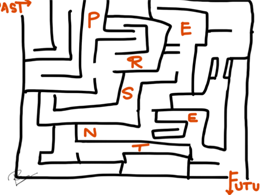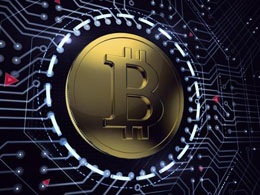
FinancesOnline.com Explores the Many Sides of Bitcoin in Their Latest Publication
As in anything new and exciting, confusion and misinformation are normal. Experts and advocates can’t seem to find common ground about the nature, purpose and future of Bitcoin. In their latest publication "The Many Sides of Bitcoin" FinancesOnline.com’s journalists sorted through mountains of information to distill the essence of this very controversial phenomenon.
First, the article answers the question, “How are Bitcoins made?” It will take some suspension of disbelief to imagine a currency created by a peer-to-peer network of machines rewarding work on the basis of mathematical prowess. Once the idea is explained, however, the demystification starts. There is no central authority issuing or regulating Bitcoins. Coins are earned by keeping a machine plugged into the network to support operations. The article also provides important details on cryptographic security and the nature of Bitcoin transactions.
This is followed by a discussion on a topic that’s foremost in the ordinary consumer’s mind. Is Bitcoin real money? The article outlines the concepts behind current views on the nature of money and argues that Bitcoin satisfies the three basic criteria of currency: (1) a means of payment, (2) a unit of account, and (3) a store of value.
Perhaps the most interesting point discussed by the article is the transition of Bitcoin from currency to commodity. Because it is traded heavily and practically unused for buying anything, Bitcoin has ceased to fulfill its original purpose. The deflationary bias of Bitcoin is also pointed out. As it acquires the ability to purchase more and its value increases, there is a tendency for people to hoard rather than spend coins. The whole Bitcoin economy, premised on creating Bitcoins by performing work to support transactions being negotiated in the system, will eventually come to a grinding halt. The article argues, however, that there is a built in disincentive for Bitcoin owners to do this because it is foreseen that future earnings will come from transaction fees rather than the creation of new Bitcoins, of which there is a finite supply.
To be fair, the article also discusses the “shady flipside” of Bitcoin. The apprehension about Bitcoin’s legitimacy originate in its illicit use on Silk Road, the infamous online marketplace for illicit trade in drugs. While Silk Road does sell legal items like clothing and books, it’s notoriety as a source of reality-altering substances has also altered the reality of Bitcoin’s potential as a medium of exchange in the real world. The anonymity that’s one of Bitcoin’s main attractions also turned out to be one of its main drawbacks.
Nevertheless, Bitcoin still holds a lot of promise. In countries with a poorly developed IT finance infrastructure Bitcoin can empower entrepreneurs by giving them the means to quickly sell their goods and services online. They need not worry about exorbitant fees charged by traditional payment systems (e.g. credit card companies or PayPal).
Whether Bitcoin eventually makes the transition to the real world marketplace is a journey being watched closely by many eyes in both the finance and IT sectors. There are those who have cast their lot fearlessly by investing in startups out to claim niches in the Bitcoin economy. There are also new online currencies that seek to duplicate or improve on Bitcoin. Online currency is a brave new world and Bitcoin is just the first among many that will stake a claim on this fertile soil.
Read the full text of "The Many SIdes of Bitcoin" article at FinancesOnline.com: http://financesonline.com/
Related News





